MercoPress. South Atlantic News Agency
Tag: Mercedes Marco del Pont
-
Monday, March 26th 2012 - 08:59 UTC
Printing money does not lead to inflation, argues Argentine central bank president
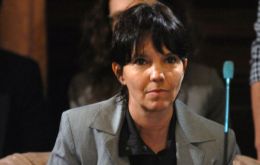
The president of Argentina’s Central Bank (BCRA), Mercedes Marcó del Pont, stressed the importance of the recently approved bank’s charter reform and denied that printing currency leads to the creation of an inflationary state “since inflation is rooted in other causes”.
-
Monday, January 2nd 2012 - 06:15 UTC
Argentine central bank confirms (unorthodox) growth policies for 2012

Argentina's economy should expand by 4.5% to 7.5% in 2012 according to the Central bank that also warned about the threat of the consequences of the Euro crisis. The bank’s latest approved monetary program states that the policies that have helped Argentina's economy boom over the last nine years will remain largely in place.
-
Thursday, December 8th 2011 - 06:44 UTC
Argentine central bank confirms pro-active policies and competitive Peso

Argentine Central Bank Governor Mercedes Marcó del Pont assured on Wednesday that the flight of dollar deposits from the local financial system has slowed down and highlighted the fact that Government’s policy of regulated exchange rate has given “certainty” to savers and investors. She also forecasted 6% growth next year for the Argentine economy.
-
Wednesday, October 26th 2011 - 15:26 UTC
Argentina floods the market with dollars to control money speculation
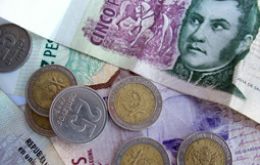
The Argentine Central Bank (BCRA) issued a special decree so that all export revenues generated by both mining and energy sectors remain in Argentina to be negotiated at the local foreign exchange market.
-
Friday, September 23rd 2011 - 07:45 UTC
Argentine central bank dismisses IMF warning on risk of overheating economies

The Argentine Central Bank Governor Mercedes Marcó del Pont dismissed the IMF’s warning on the risk of overheating economies in developing countries.
-
Thursday, September 8th 2011 - 05:43 UTC
Argentine prepared to let the Peso and central bank reserves slide

Argentina's international reserves have been declining for weeks as the central bank tries to stem the peso's slide against the US dollar, but policymakers have signaled that they intend to keep dipping into reserves to prevent an even swifter depreciation.
-
Friday, August 26th 2011 - 04:09 UTC
Argentina blasts Moody’s for questioning soundness of the banking system
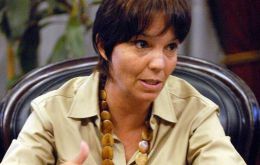
Argentina’s Central Bank’s Governor (BCRA) Mercedes Marcó del Pont said on Thursday that the Argentine banking system “is in its best historical levels of liquidity, solvency and default rates” referring to an earlier report from Moody’s rating agency.
-
Saturday, July 2nd 2011 - 05:50 UTC
“Cooling the economy or appreciating the currency” backfire for developing countries
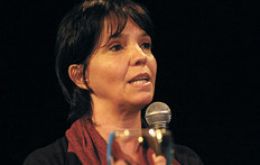
Central bank president Mercedes Marcó del Pont defended on Friday Argentina’s current economic policies, particularly efforts to address the international crisis arguing that “cooling the economy or letting the currency appreciate only aggravates the crisis”.
-
Saturday, March 19th 2011 - 07:13 UTC
Argentine economy expanded 9.2% in 2010 and begins 2011 with a”6% floor”
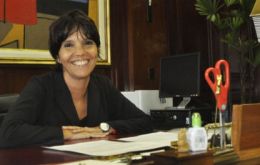
Argentina’s economy grew 9.2% during the last quarter of 2010 compared to the same period in 2009, according to an official report from the government’s statistics office, Indec. The country’s GDP also increased 2.5% compared to the previous trimester and totalling 9.2% growth during 2010.
-
Friday, March 4th 2011 - 22:29 UTC
Argentina pays international debts with Central bank ‘free and available’ reserves

Argentina's federal government on Friday said it will pay 2.17 billion US dollars owed to international financial organizations this year with central bank reserves and funds held in the treasury.
